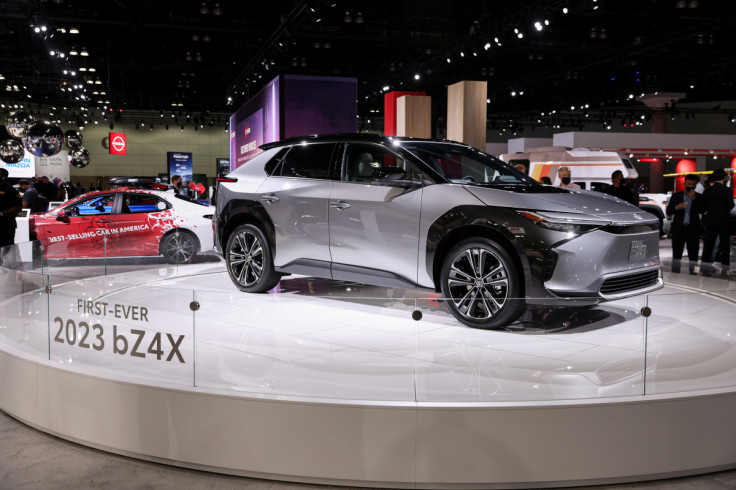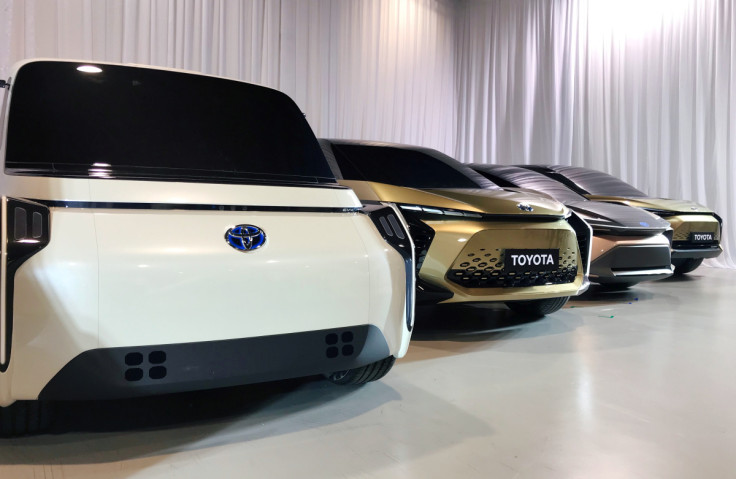Toyota Says Found Fix For Wheel Issue That Caused EV Recall

Toyota Motor Corp said it had found a fix for a defect that caused a recall of its first electric vehicle (EV), bZ4X, months after the recall froze deliveries of the car and hurt the automaker's nascent efforts to electrify its range.
Toyota, a laggard in the EV market, recalled 2,700 bZ4X sports utility crossovers globally in June, less than two months after the model was launched, because of a risk of wheels coming loose.
Subaru Corp, a fifth owned by Toyota, also had to recall units of the related Solterra model that it jointly developed with Toyota.
Japan's safety regulator said in June that sharp turns and sudden braking could cause a hub bolt to loosen, raising the risk of a wheel coming off the vehicle, which analysts had said was a simple and inexpensive problem to fix.
Toyota on Thursday said in a filing with Japan's transport ministry that it would make sure hub bolts were replaced and properly tightened in new cars.
The company also said it had identified and fixed a potential problem with airbags in the car, making sure that curtain-shield airbags designed to prevent head injuries in a crash were properly installed. That problem had not been identified before.
Toyota has faced criticism from environmental groups and investors who want the company to move faster to adopt battery EVs. Toyota has pushed back, saying it needed to offer car choices to suit different markets and customers.
Hybrid EVs such as the Prius remain far more popular in Toyota's home market, and pure EVs accounted for just 1% of the passenger cars sold in Japan last year, according to industry data.
In an effort to assuage concerns about battery life and resale value of EVs, Toyota rolled out the bZ4X for lease only in its Japan market.
The model, pitched as Toyota's answer to Tesla's <TSLA.O> Model Y and the Volkswagen's ID.4, has sold just 232 units this year in the United States, Toyota said earlier this week.
Last year, the Japanese automaker committed about $30 billion to develop battery electric vehicles. It expects the company's annual sales of such cars to reach only 3.5 million vehicles by the end of the decade, about one-third of current annual sales of its gasoline-powered cars.
Reuters reported on Thursday, citing two people familiar with the matter, that Toyota expects to resume selling the bZ4X as soon as this month after fixing the wheel defect.

© Copyright Thomson Reuters {{Year}}. All rights reserved.





















